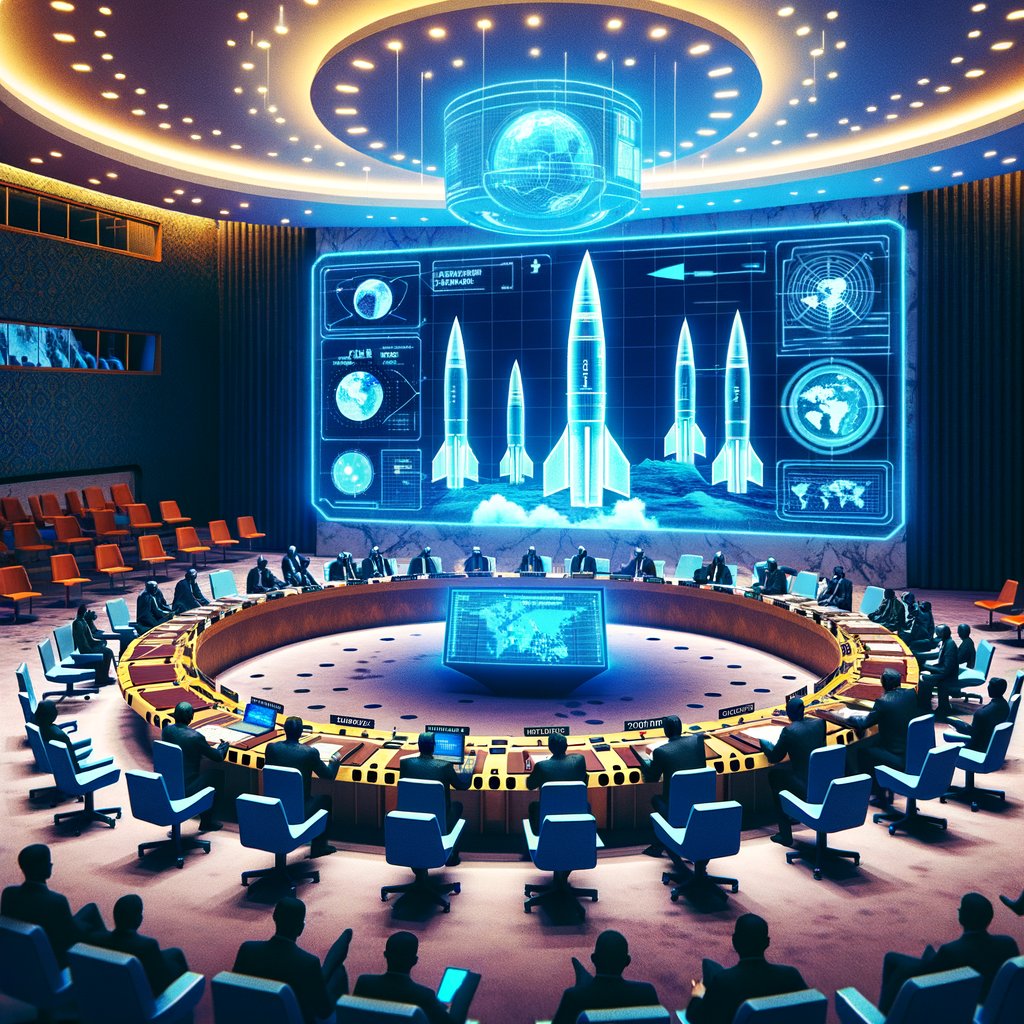Image created by AI
New Evidence Revealed at UN Security Council: North Korea's Missiles Used in Ukraine by Russia
In a significant disclosure at the United Nations Security Council (UNSC), evidence was presented demonstrating the use of North Korean missiles by Russia in the ongoing conflict in Ukraine. Jonah Leff, the director of Conflict Armament Research, a UK-based organization that specializes in tracking weapons used in warfare, emphasized the rapid timeline from production to deployment of these missiles, a process spanning mere months.
Leff detailed that remnants of four North Korean-produced missiles were discovered on Ukrainian battlefields in July and August, with manufacturing dates as recent as 2024. This revelation marks the first instance of tangible evidence linking North Korean arms production directly to the Ukrainian conflict within such an accelerated timeframe.
This unsettling development aligns with reports from June, where Leff had previously informed the UNSC about the identification of North Korean ballistic missile remnants in Ukraine earlier in the year. The implications of these findings are profound, highlighting a robust military collaboration between Pyongyang and Moscow.
Adding to the geopolitical tensions, an unnamed official from the North Korean Foreign Ministry cited by the Korean Central News Agency claimed effective deterrence against the United States and its allies, fueled by the enhanced military alliance with Russia. This statement coincides with Russia and North Korea recently formalizing a mutual defence pact, reportedly deploying over 10,000 North Korean soldiers to aid Russian forces in Ukraine.
Despite the claims of involvement and effectiveness, neither Moscow nor Pyongyang has confirmed the presence of North Korean troops in Ukraine. However, South Korea’s National Intelligence Service provided stark contrast to these claims, reporting significant casualties among North Korean forces deployed in Russia, indicating severe challenges faced by these troops in unfamiliar war terrains against Ukrainian drone operations.
The international response has been one of concern and condemnation. Ukraine’s President Volodymyr Zelenskyy acknowledged the noticeable impact of North Korean troop losses. Moreover, the United States, South Korea, the European Union, and several other nations have issued a joint statement denouncing North Korea’s escalating role in the conflict, emphasizing the grave implications for both European and Indo-Pacific security.
At the same UNSC meeting, US Ambassador Linda Thomas-Greenfield voiced apprehensions over Russia potentially recognizing North Korea as a nuclear state, signaling a possible shift in Moscow’s long-standing policy towards Korean peninsula’s denuclearization. This development could further complicate global diplomatic efforts aimed at maintaining regional stability and preventing nuclear proliferation.
Meanwhile, Russia defended its growing alliance with North Korea. Russian UN Ambassador Vassily Nebenzia stated that these cooperations were in compliance with international law and dismissed any threats they pose to global security.
This ongoing development underscores the intricate and volatile nature of international relations and conflicts, revealing how alliances and military strategies can profoundly affect global peace and security dynamics.










